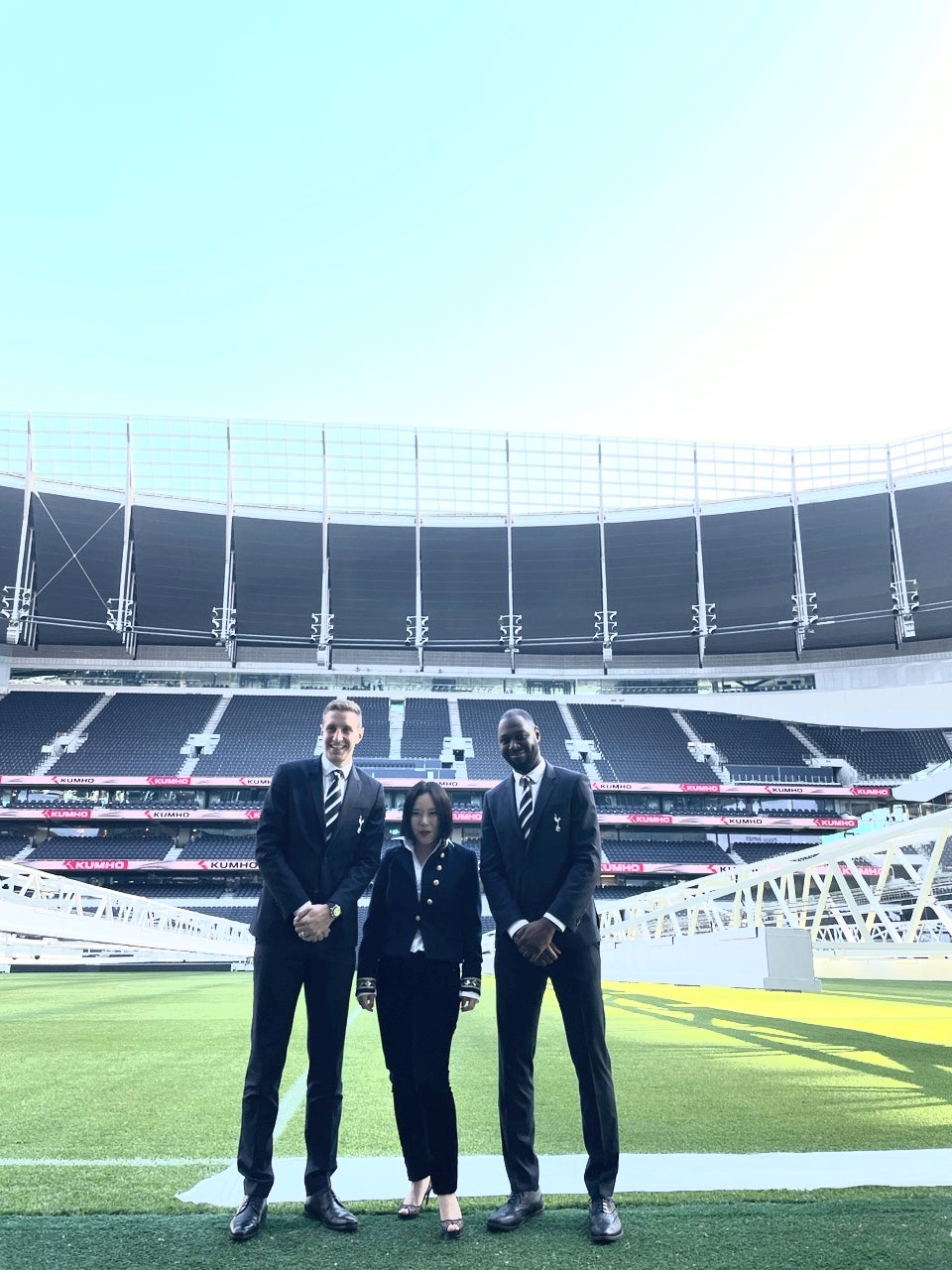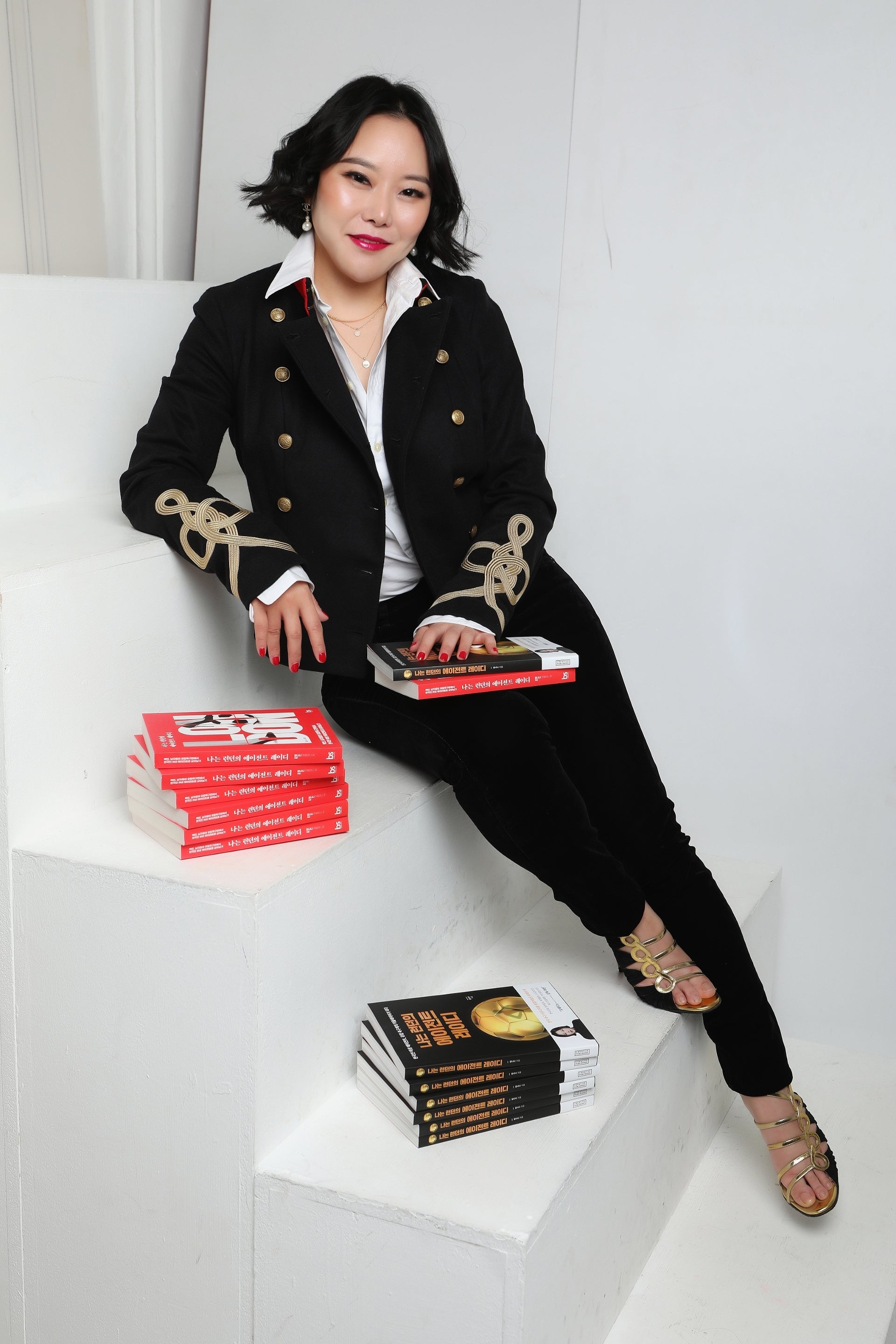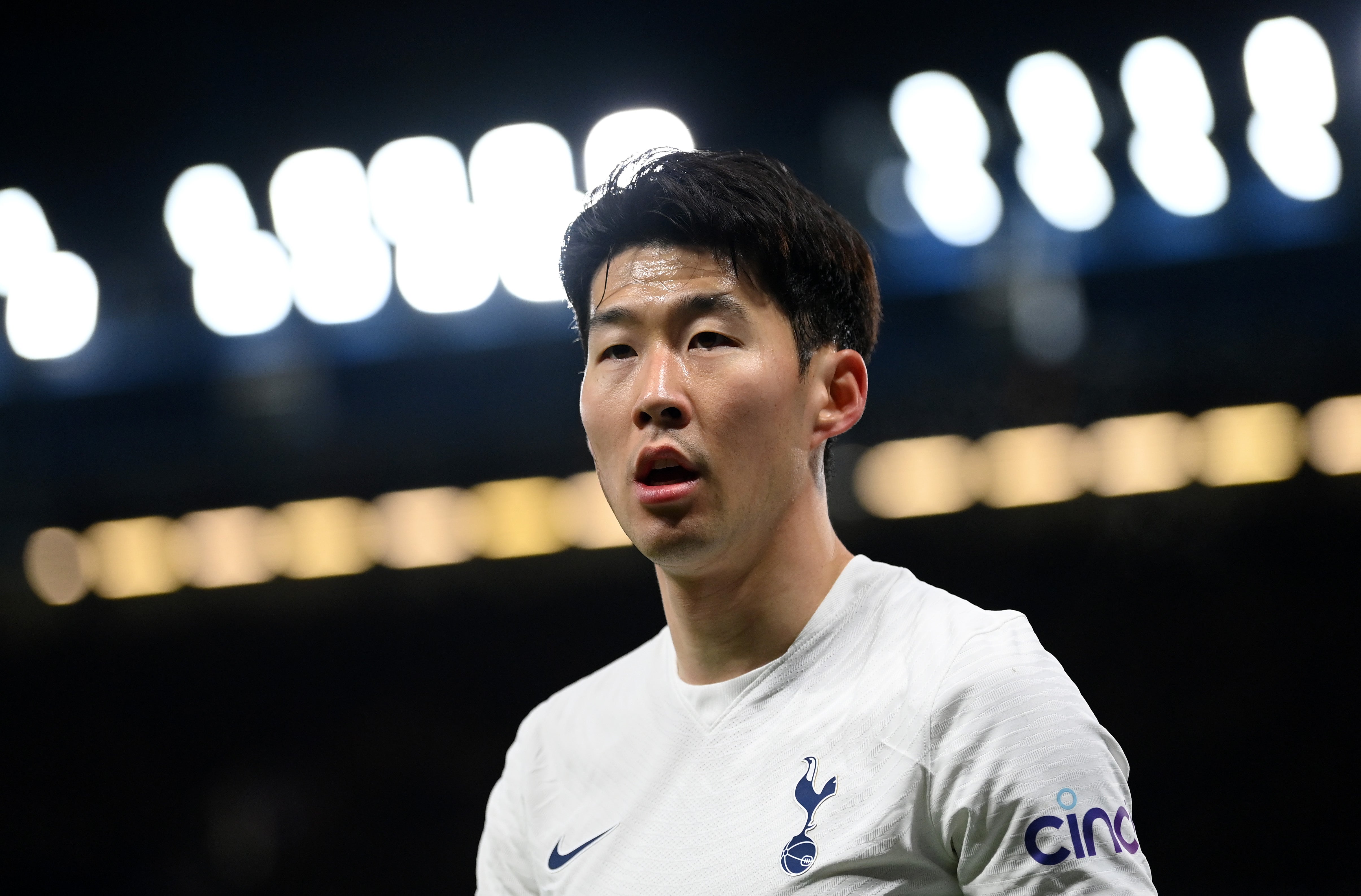How does a woman from South Korea become a football super agent?
Catalina Kim tells the truth, when others may not. That’s what sets her apart from other football super agents. Well, that and the fact she’s not white, European or male, writes Andy Martin


She is not in favour of the European Super League, mainly because of her little brother. But the first thing you will want to know is, how does a woman from South Korea become a football super agent in a cut-throat realm dominated by European white males? Part of the answer is that she was inspired by her love of languages.
Catalina Kim was born and brought up in Seoul but went to an international school where she learned English and Spanish. She went to Paris because she wanted to learn French. She picked up Italian in Milan. And, she says: “The key languages for football are Spanish, Italian, Korean and English.” Jurgen Klopp and Thomas Tuchel might protest, but really how often do you hear them speaking German? She admits that her French is not very good, “but fortunately PSG speak English”.
Kim landed in London in 2011 and began working in the economics department of the Korean embassy. Her job was to liaise with western corporations wanting to enter the Korean market. And her brief was specifically to emphasise how fun and profitable it would be to open up in Korea. “We were giving them nice words,” as she puts it. But having worked in the private sector before, she wanted to be as straight with them as possible.
So it was that one day in 2012 she gave her usual spiel to one such optimistic businessman. But as she was walking him out of the building, she hopped in the lift with him and on the way down from the fifth floor quickly gave him the real story. “Don’t do it! Here are three reasons why you will fail in Korea… Have a good afternoon, bye!” The entrepreneur was gobsmacked: it was the exact opposite of what he had been told officially. And it so happened that he had recently been doing business with Manchester City FC.
So her career was launched and in 2013 she set up the Catalina & Partners agency (now C&P Sports Agency), which now boasts a team of 28, working in London, Frankfurt and Seoul. But in truth Catalina Kim had long been a big football fan. She went to games in Korea and was conscious of how South Korea had eliminated Germany from the world cup in 2018. “English people showed appreciation.” She had been a regular at AC Milan games too. In London she supports… ah! But that is a secret. “I know how passionate fans are. I don’t want to upset anyone.”

Inside football, Catalina Kim is known as “the agent lady”, as in “has the agent lady arrived yet?” or, “call the agent lady”. She has a memoir out in Korean with the title, I Am an Agent Lady in London. She is not one of those agents who have a habit of ramping up the price of individual star players – the astronomical sums involved thus arousing a degree of scepticism, furious resentment and a desire to become a football agent. Rather she generally works at the level of clubs and leagues and corporations. One of the first things she did was to broker international deals for Manchester City. Then she introduced Kumho Tyres to Tottenham Hostpur – Kumho are now their official “tyre partner”. She went on to establish a connection between Real Madrid and Korea, ultimately enabling them to set up football programmes in the country. Her connections at the embassy were a big plus. The fact that the striker Son Heung-min, captain of South Korea and “best footballer in Asia”, went to Spurs in 2015 probably did her no harm either.
Female agents are still few and far between. As recently as 15 years ago, Rachel Anderson – a long-time West Ham fan – was the only Fifa-licensed woman football agent in the world – and has the honour of once having been turned away from a PFA awards ceremony on account of being the wrong gender. Glenn Moore, former football correspondent for The Independent, who now covers women’s football for World Soccer, reckons that the Women in Football pressure group exists because it needs to.
“Progress has been surprisingly slow considering the industry’s growing professionalism,” he says. “Women are more involved in the game behind the scenes in all areas, from physio to chair, with some being very influential (eg Marina Granovskaia at Chelsea). But they’re still very much a minority. More women can only be good for the game, you’re doubling the talent pool and providing a subtly different perspective, but growing diversity in the game’s higher echelons has been a slow haul.”
Kim has acquired a reputation for telling people what they don’t want to hear. “They could hire any number of white or Asian guys to tell them what they want to hear. They know that I will tell them the truth – just like the guy in the lift at the embassy. I have resistance to…”
“Bullshit?” I offer.
“Yes, that is the word.”
Manchester United, despite some poor recent results/seasons, are probably still the biggest sports brand in the world. “If you think you are as big as Man U, I can’t help you,” says Kim.
“What if I’m not?”
“Then I can find a way to strengthen your brand in Korea.”
I was not too shocked to learn from Kim that the great world of agents is full of smooth-talking hype-peddlers trying to pull a fast one, or as she diplomatically puts it, ‘not qualified to do the deal’
Which is reassuring. But she didn’t pull any punches with Spurs, for one. After they bought Son from Korea she said to them, rather harshly, “you know you’re not a big club! You’re not Man U just because you bought a Korean player.” They were, perhaps predictably outraged. “I’m the only person to talk to them like that,” says Kim.
I was not too shocked to learn from Kim that the great world of agents is full of smooth-talking hype-peddlers trying to pull a fast one, or as she diplomatically puts it, “not qualified to do the deal”. She was able to save one well-known club from falling for a big fat scam in Asia. Which explains why European clubs are often reluctant to work with Asian agents. The paradox is that most deals – the genuine kind – now come from the far east. “There is a lot of ignorance and arrogance about the Asian market, including China,” says Kim. “How many Asians are working in La Liga?” She asks. Not many.
Kim herself reckons not having been a player is sometimes perceived “as like having a disability”. There is a classic encounter, recorded by Simon Kuper and Stefan Szymanski in Soccernomics, that sums this up. “Once in the 1980s, when Kenny Dalglish [former Liverpool striker] was in his first spell managing football, a journalist at a press conference questioned one of his tactical decisions. Dalglish deadpanned, in his almost impenetrable Scots accent: ‘Who did you you play for, then?’ The whole room laughed. Dalglish had come up with the killer retort: if you didn’t play, you couldn’t know.” But as they point out, this semi-mystical belief in the ex-player is basically a job protection scheme. As someone once wisely said, “you don’t have to have been a horse in order to be a jockey”. Kim herself takes a dim view of pinning too much faith on – without naming names – ex-players. “It’s very strange: why would you believe a corporate person should have come from the sport?”

She is conscious that there is no Korean ownership of any Premiership teams. But that could change. “I’m in discussions at the moment… these things take time.” Kim, by the way, doesn’t say “South Korea”. “Korea is us. South only,” she tells me. “I broker deals between European clubs and South Korea. North Korea is also strong in sports and Kim Jong-un is known to be a big sports fan. However, under economic and commercial sanctions imposed by the UN, it is not possible for me to get engaged in any commercial transaction with the North.”
Football is increasingly a form of international diplomacy. Kim herself would make a decent ambassador and I would back her to have a decent shot at reconciling North and South. “Personally, I trust sports could contribute well to resolving or diminishing political differences, as we have observed from the 'Ping-Pong Diplomacy' between US and China in the early 197’s. When the time is right, if I would ever be asked, especially with a clear consensus agreement by all regulatory organisations, I would be honoured to offer to help with my knowledge in Foreign Affairs and Sports. Albeit, we have to wait for the right moment for now.”
But Kim concedes that all is not rosy in the far east, especially if you’re a woman. “Girls are not encouraged to do sport at all.” she says. “You’re supposed to be a princess. And we’re not tolerant of disabilities either.” The case closest to her heart is her own little brother, who suffers from autism. “We were often kicked out of restaurants because other customers would complain. It was the same with cinemas and concerts. And school. Other parents would call on our house – ‘why are you sending your son to our school, slowing everyone down?’”
Her brother never really had a friend because the other kids were told not to play with him. But this, strangely enough, was how she got into football to begin with. The young Kim was encouraged to play sports so that her little brother would have someone to play with. So it was that, growing up in Korea, she was usually the only girl playing football and basketball with the other boys. “I was like a brother to my little brother.” She did weight training alongside him, tennis and horse riding. She was, in effect, obliged to become an all-rounder.
But you have to find your fairness. They accepted me. Just as they accepted my little brother. There should be more women in the game and more Asians. But nobody locked the door
But there was one primal experience going back to the 90s that had a powerful impact on her outlook – and explains why she doesn’t like the idea of a European Super League. She was only 11 and it was her first experience of going to the Olympic stadium in Seoul. Korea were playing another nation (she can’t remember the opposition). “No one was staring at my brother – because they were focusing on the game. Finally we found a place where we could go and be comfortable. My brother was excluded from everything – but not here.”
She recalls that when Korea scored, a supporter in the row in front leaped up and turned around and high-fived her brother. “He reached out his hand to my brother. He wanted him to be a part of it. We were fighting the government, the school system, everyone – but this was a great moment for us. That is why I always feel happiness in a football stadium.”
I think this helps to explain why, despite the manifest inequities, she thinks of football as essentially inclusive and why it is that “you need to support the minorities in football, not just the big clubs.” It also explains why she includes the “kids market” in every deal. “I know how much football can bring to kids’ lives. It’s the most accessible sport in the world. Football exists everywhere.”

As Kuper and Szymanki put it succinctly:“The entire [football] industry discriminates illegally against women.” And even more so against Asian women. But Kim still thinks well of the beautiful game. “There is a fairness in football,” she says. Yes, it is still male dominated. Yes, it is orchestrated predominantly by white European men. “But you have to find your fairness. They accepted me. Just as they accepted my little brother. There should be more women in the game and more Asians. But nobody locked the door. And we’ve done some fantastic deals.”
People think of football agents as hard-as-nails, ruthless negotiators. And maybe they are. But Kim has a sentimental side. By the time she finished her story about her little brother she was crying. When she finished, Kim said that she owes it all to her brother. “Without him I wouldn’t have been familiar with this sport, or been comfortable with it.”
Her Agent Lady book needs a decent translator. Anyone with a knowledge of football, Korean and English should apply. It emphasises again how useful multilingualism can be if you want to be a global player – in football or anything else. Kim notes that when there are events involving Asian countries, “they have everyone speaking in English. But it doesn’t make you more international. People are paying for these partnerships. We need to speak more Asian languages in Europe. We need to accept that there are other languages, not just English.”
Andy Martin is the author of ‘Surf, Sweat and Tears: the Epic Life and Mysterious Death of Edward George William Omar Deerhurst’ (OR books)




Join our commenting forum
Join thought-provoking conversations, follow other Independent readers and see their replies
Comments